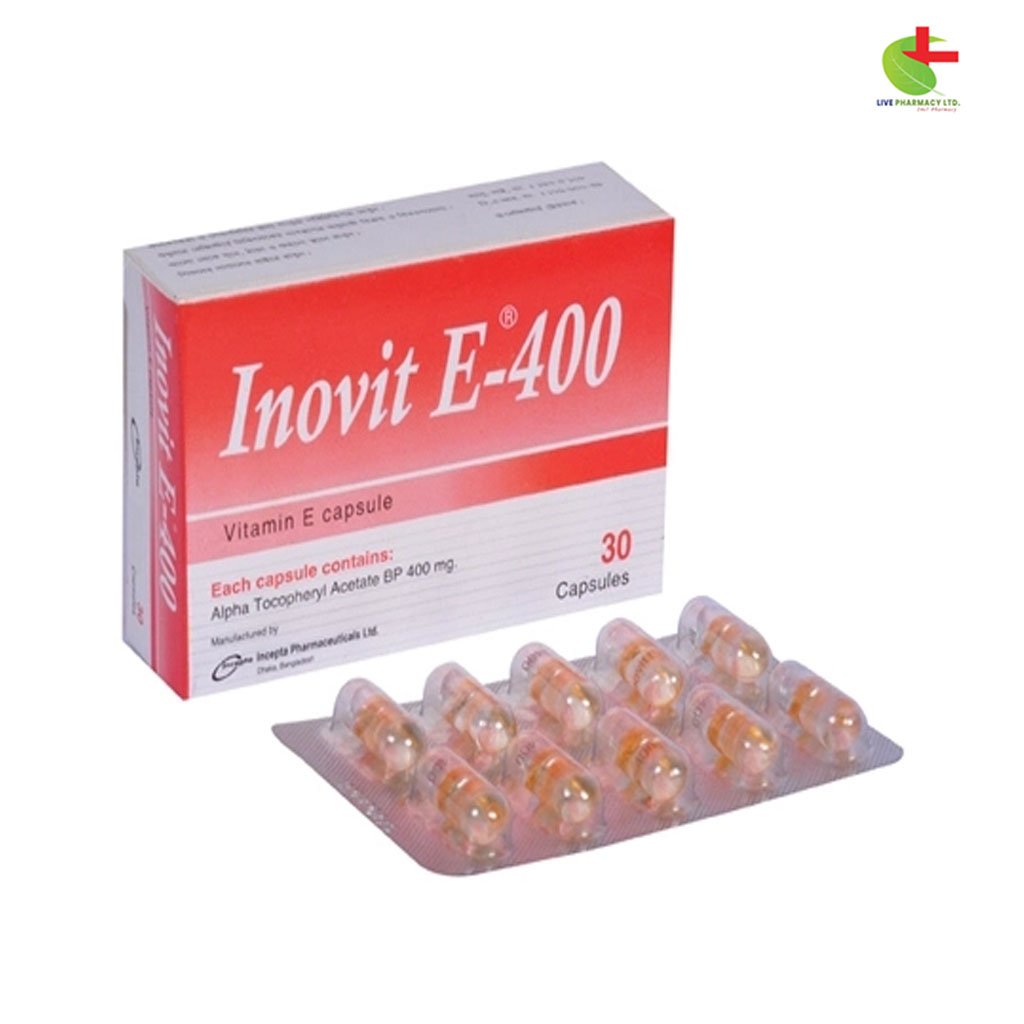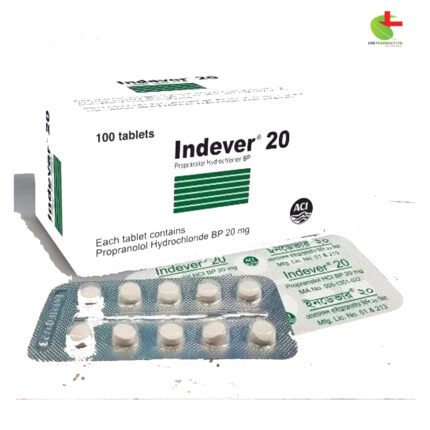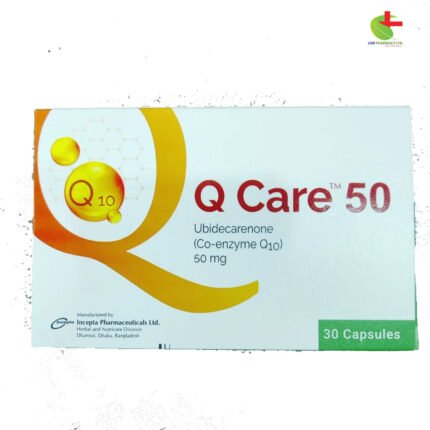Inovit E 400
60.00৳ Strip(10)
- Inovit E is a vitamin E supplement (d-alpha tocopherol) used to treat and prevent vitamin E deficiency.
- Acts as an antioxidant, supporting conditions like Alzheimer’s, rheumatoid arthritis pain, and male infertility.
- Also aids in heart disease, age-related macular degeneration, and menstrual discomfort.
- Dosage varies based on condition; follow a healthcare provider’s guidance for safe use.
- Store in a dry, cool place, away from children’s reach.
 Brand
Brand
|
Incepta Pharmaceuticals Ltd |
|---|---|
 Generics
Generics
|
Vitamin E [Alpha Tocopherol Acetate] |
 Type
Type
|
Capsule |
Indications
Inovit E is prescribed for both the prevention and treatment of Inovit E (d-alpha tocopherol) deficiency. Additionally, it serves as an antioxidant to support, protect, and manage various health conditions, including:
- Alzheimer’s Disease
- Pain from Rheumatoid Arthritis
- Nerve Damage from Chemotherapy
- Male Infertility
- Age-related Macular Degeneration
- Post-keratectomy Recovery
- Premenstrual Syndrome
- Painful Menstrual Periods
- Heart Disease (to enhance nitrate effectiveness)
Follow the guidance of a registered healthcare provider when using this medication.
Pharmacology
Vitamin E, a powerful antioxidant, plays a crucial role in protecting polyunsaturated fatty acids (key components of cell membranes) and other oxygen-sensitive nutrients like vitamins A and C from oxidative damage. In preterm infants, a deficiency in vitamin E can result in irritability, swelling, blood clots, and hemolytic anemia. In adults and children with low tocopherol levels, vitamin E deficiency has been linked to creatinuria, ceroid buildup, muscle weakness, reduced red blood cell survival, and increased susceptibility to hemolysis by oxidizing agents.
Dosage & Administration
- Age-related Macular Degeneration: 400-600 IU of Vitamin E daily.
- Heart Disease (to boost nitrate effectiveness): 200 IU three times per day.
- Dementia/Alzheimer’s Disease: 800-2000 IU, taken one to two times daily.
- Rheumatoid Arthritis Pain: 600 IU daily.
- Male Infertility: 200-600 IU daily.
- Premenstrual Syndrome: 400 IU daily.
- Painful Menstrual Periods: 200 IU daily.
Follow the guidance of a registered healthcare provider when using this medication.
Interactions
Inovit E may reduce the absorption of vitamins A and K and may enhance the effects of Warfarin.
Contraindications
Do not use Inovit E if you are hypersensitive to vitamin E or have hereditary conditions such as fructose intolerance, glucose-galactose malabsorption, or sucrose-isomaltase deficiency.
Side Effects
High doses over 1000 IU daily may cause diarrhea and abdominal pain.
Pregnancy & Lactation
The safety of high doses of vitamin E during pregnancy, especially in the first trimester, has not been established. Vitamin E should also be avoided during lactation, as excretion in breast milk is not documented.
Precautions & Warnings
Patients with a vitamin K deficiency or those on anticoagulants should use Inovit E cautiously, as it may increase bleeding risks. It’s advisable to monitor prothrombin time and INR. Inovit E has also been linked with increased thrombosis risk, particularly in patients susceptible to this condition, including those on estrogen therapy. This association has not been confirmed but should be considered, especially in women using estrogen-based contraceptives.
Overdose Effects
In cases of doses exceeding 1000 IU daily, temporary gastrointestinal symptoms may occur. Supportive care should be provided as needed.
Therapeutic Class
Herbal and Nutraceuticals, Vitamin E Preparations.
Storage Conditions
Store in a cool, dry place away from light and heat. Keep out of reach of children.













Reviews
There are no reviews yet.